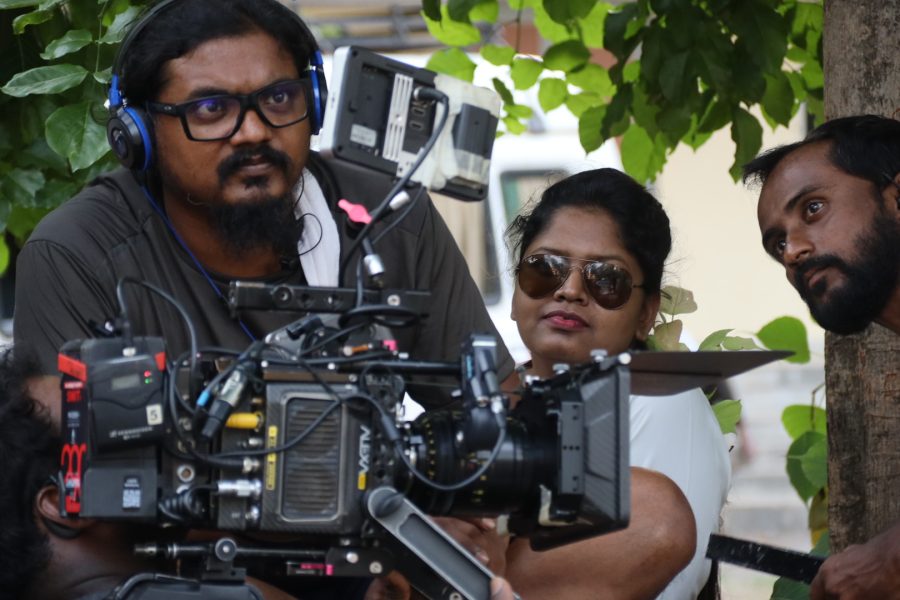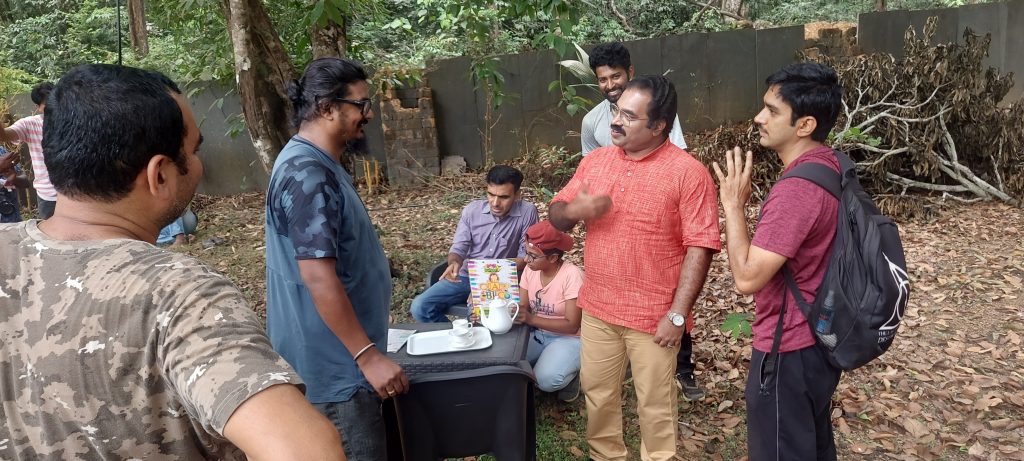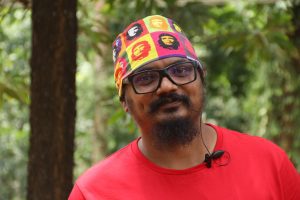
With sedition law, not easy to criticise govt today: filmmaker Mansore

The majority of the filmmakers in India choose to remain silent on the growing atmosphere of intolerance in the country, and the attempts to crush critical or dissenting voices with a colonial, antiquated sedition law.
A handful of filmmakers, however, are mustering courage to ask pertinent questions. One of them is national award winning filmmaker, Manjunatha Somakeshava Reddy, popularly known as Mansore in film circles.
Mansore – a visual artist turned filmmaker, has carved a niche for himself in Kannada cinema by making meaningful, issue-based films such as Harivu, Nathicharami and Act1978, and secured national awards, besides getting his works screened at the Panorama selection of the International Film Festival of India (IFFI).
The director is currently working on the post-production of his latest venture 19.20.21, which is based on true events and addresses the all-prevailing threat in India to the fundamental right of protection of life and personal liberty. Mansore is more in the news, not because of his films, but for questioning what he describes as anti-people and the anti-democratic decisions and policies of the state.
Also read: ‘India is sinking into dark hole of hate and bigotry’: Leena Manimekalai on Kali row

Recently, he questioned the Karnataka government’s decision to waive off Goods and Services Tax (GST) for The Kashmir Files and 777 Charlie and even stood by the embattled south actor Sai Pallavi, who recently condemned religious violence of any kind and was brutally abused on social media. He also dared to question Prime Minister Narendra Modi over the controversial Agnipath scheme.
In a chat with The Federal, Mansore said, “Posing questions to the state, whenever I get disturbed by its policies and decisions that are detrimental to the right to life, regardless of the political party in power, is not new for me. I started questioning during my student days at the Karnataka Chitrakala Parishat (CKP)-the premiere art institute in the state. But, my questions are drawing public attention just because I am a filmmaker now and in a position to influence public opinion.”
Standing by Sai Pallavi
Mansore stood by the talented Sai Pallavi when she was trolled by Hindutva forces for her mature observation on the ongoing violence in the name of religion. He also criticised the media for misreading and misinterpreting her stand. Earlier, he had approached Sai Pallavi for a character he had in mind for his next venture and had a long discussion with her. In the process, he realised that the actress has a perfect understanding of present-day society and politics, besides an in-depth knowledge of the country’s history.
In his #Istandwith_Saipallavi post he defended her by noting; “she is not like other artists who would pass their opinion on anything and everything. It is an injustice to treat her statement as frivolous and ignorant”.
Also read: Prophet Muhammad row: Khans silent as they have ‘too much to lose’, says Naseeruddin Shah
Reintroduce entertainment tax waiver for Kannada films
Further, Mansore has written an open letter to CM Basavaraja Bommai, questioning the rationale behind extending the GST waiver facility to a selected few films such as The Kashmir Files. Though, he welcomed Bommai’s decision to extend the tax waiver facility to 777 Charlie, he appealed to the CM to re-introduce the entertainment tax waiver benefit to all films produced in Karnataka, which Kannada films had been enjoying before the GST regime.
In the letter, he recalled the contribution of Kannada film industry’s iconic actor Dr Rajkumar in getting the entertainment tax abolished during the Janata regime in the 80s.
Likewise, he wrote an open letter to Prime Minister Narendra Modi, appealing to make it mandatory for children of elected representatives and bureaucrats to take up the #Agnipath scheme and provide them with an opportunity to serve the country. “Though children of bureaucrats and politicians are interested in benefitting from the Agnipath scheme, their parents are forcing them to study in foreign countries,” he said in the letter.
 Mansore: a filmmaker with a conscience
Mansore: a filmmaker with a conscience
Mansore’s first film, the 2012 Harivu, is a serious critique of the public health system in Karnataka and is based on a true story. It speaks about the link between urbanisation and alienation.
In Naticharami, he questioned patriarchy and addresses issues faced by a single woman in her life. The film received rave reviews and secured many awards. In his recent Act 1978, which is women-centric film, he dealt with the all-pervasive corruption in society. This film talks about a pregnant woman’s fight against a corrupt bureaucratic system.
Unwilling to reveal too much about his latest film 19.20.21, the director said, “I deal with the most important right to life and liberty issue in this film.”
The colonial sedition law
The colonial sedition law has been employed recklessly by the governments to target critics, from journalists to activists and filmmakers. In this increasingly stifling environment, to a question on whether Mansore feels threatened or scared, he replied, “I know sedition cases have been filed against 400 plus people since BJP came to power at the Centre. Last week, the Delhi Police arrested Mohammed Zubair, founder of Alt News for allegedly disturbing religious harmony. His crime is that he checks facts and debunks misinformation that people encounter on a daily basis. Threatened by the political fallout of unveiling fake news, the political dispensation is invoking the sedition law.”
“I am really scared of meeting a similar fate for speaking the truth,” admitted Mansore. However, he declared, “My conscience will not permit me to keep quiet. At the most, the state can harass me by filing cases and invoking the colonial law to silence my voice. I am not afraid of the consequences of speaking the truth including elimination. I will keep questioning regardless of the outcome till my last breath.”
Mansore honestly admitted that at the same time, he thinks twice before reacting keeping the interest of his producer in mind. “Ultimately, it is all about economics in the entertainment industry, isn’t it?” he asked.
Today, Mansore is also wary of the sedition law. “The fear that sedition law will be invoked against me is palpable. I am worried after YouTube blocked Anthem for Kashmir – a nine-minute short film made by Sandeep Ravindranath following directions from a government agency,” he said.
According to him, today, it is not easy to make films that criticise government policies. “We are not as fortunate as the Tamil and Malayalam industries, where films such as Jana Gana Mana can be made without any restrictions. Despite strong opposition from the film fraternity, the government merged the Films Division, National Film Archives of India, Directorate of Film Festivals and Children’s Film Society with the National Film Development Corporation. With this move, cinema in India is being controlled by those in power,” he pointed out.
In the end, Mansore said, there is only hope when sensitive minds decide to get together and use the visual medium as their religion and language to protect the wonderfully diverse, multilingual, multicultural, multi-religious quality of Indian cinema.

